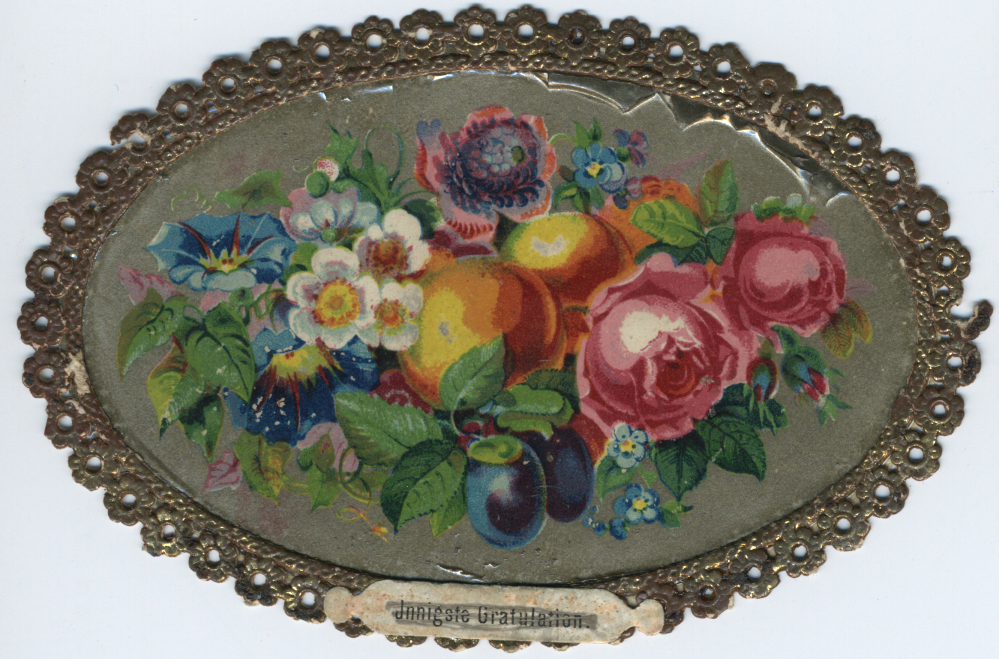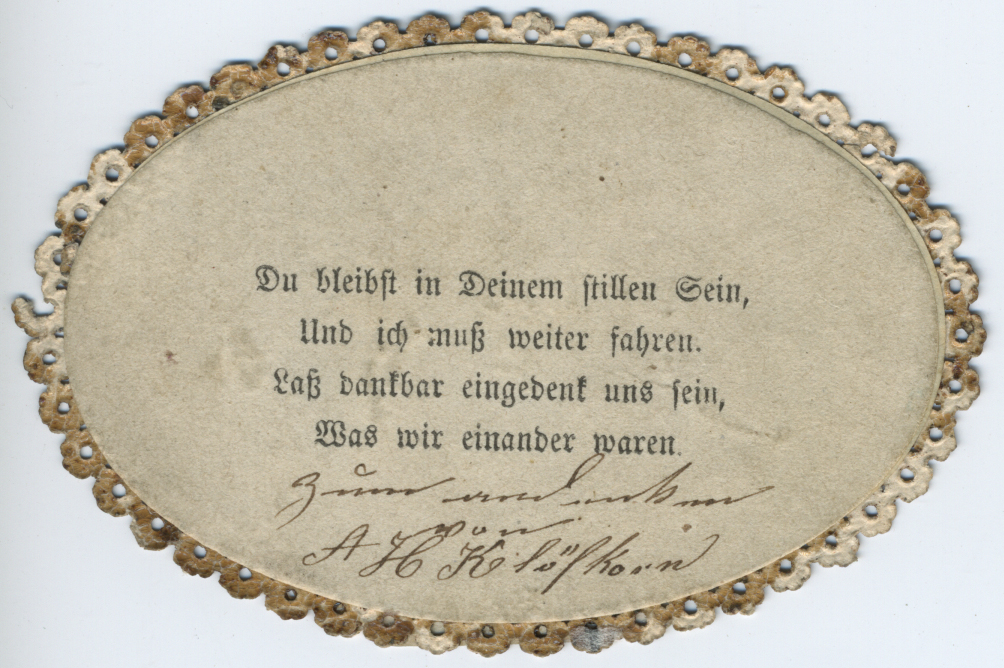In Memory Of
I belong to a German genealogy group on Facebook where members are ready and willing to help in any way, many times by translating German text.
I also have a scan of a small piece of ephemera that is part of the collection of a Tapper relative. In 2008 this collection was sent to my mother to scan, catalog, and organize, which she did, and then returned the box to her cousin. While I found all the small bits fascinating, one piece, in particular, caught my eye as it had the name A. H. Klöfkorn written at the bottom. I grabbed my German/English dictionary and took a stab at translating the text. I didn’t get very far in creating a translation that made sense to me. I opened Google Translate and what it produced made even less sense. I put the image of the piece aside but would return to it now and again to take another stab at it.
The small piece is very pretty, with a bouquet of flowers on one side, with the text “Heartfelt Congratulations” written below, but scratched out with a strong line across it. This I could translate. Flowers, congratulations, the signature of A. H. Klöfkorn… All I could think ,was that this was a token of love given to my great-grandmother Gretje Folkerts Müller by her husband, Albert Heinrich Klöfkorn. I wrote about them in my post titled: “Strength at Christmas” which can be found here: https://www.outagamieandbeyond.com/2015/12/26/strength-at-christmas/.
A friend from high school is also a member of the aforementioned Facebook group, and I began to notice that she was having a lot of luck asking for translations of postcards and other items in her collection. A lightbulb went off as I remembered this piece and my frustration in translating it. I decided to ask the group for help. OH MY GOSH! Almost before I finished hitting send, the messages of help started to flow in. What I received that morning was not only a translation, but a link to the original poem it came from, a link to a good German to English translator, comments about the text, and me having the opportunity to tell everyone who helped why this was so important to me. It was a good morning.
Here is what I learned. The text includes words that there is no direct equivalent in English, so the wonderful translator included options:
You remain in your still/quiet/peaceful being/existence.
And I must travel on.
Let us remember with gratitude,
What we were to each other.
As a reminder/memory, A. H. Klöfkorn
I was both right and wrong in my thoughts about what this small piece was to Gretje. Albert did not give her the small card, he did not sign the small card, but in many ways, it is a small token of love, a memory of a person lost. It is an early form of today’s funeral card.
The text, (thank you to the wonderful translator) is the third stanza of a poem by Friedrich Rückert (1788-1866) titled: “Du hast mir hell in’s Herz geblickt.” The text has also been put to music.
A bit of Googling tells me that mourning cards date as far back as the 1700s, and stem back to the custom of using calling cards to announce your visit. Receiving a mourning card could serve as your “ticket” to attend the funeral.
While we may never know if this small card was created at the time of Albert’s death on 20 Dec 1870, or if Gretje found the card and many years later wrote his name at the bottom, I feel confident that this card with its stanza of poetry on the back meant something to Gretje. The sentiment reminded her of her first love, her husband, Albert Heinrich Klöfkorn who was lost at sea, going down with his ship the Drei Schwestern (Three Sisters).
1 Comment
Comments are closed.



Obviously, we are distantly related. I would be interested in any information about the Tappers in Hammond. I knew Roland and Verna as they lived across from us. I am afraid our history will die out as we age.